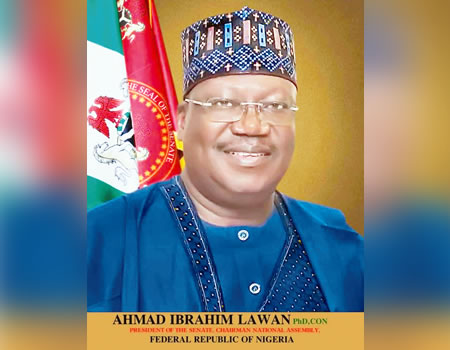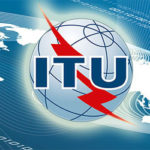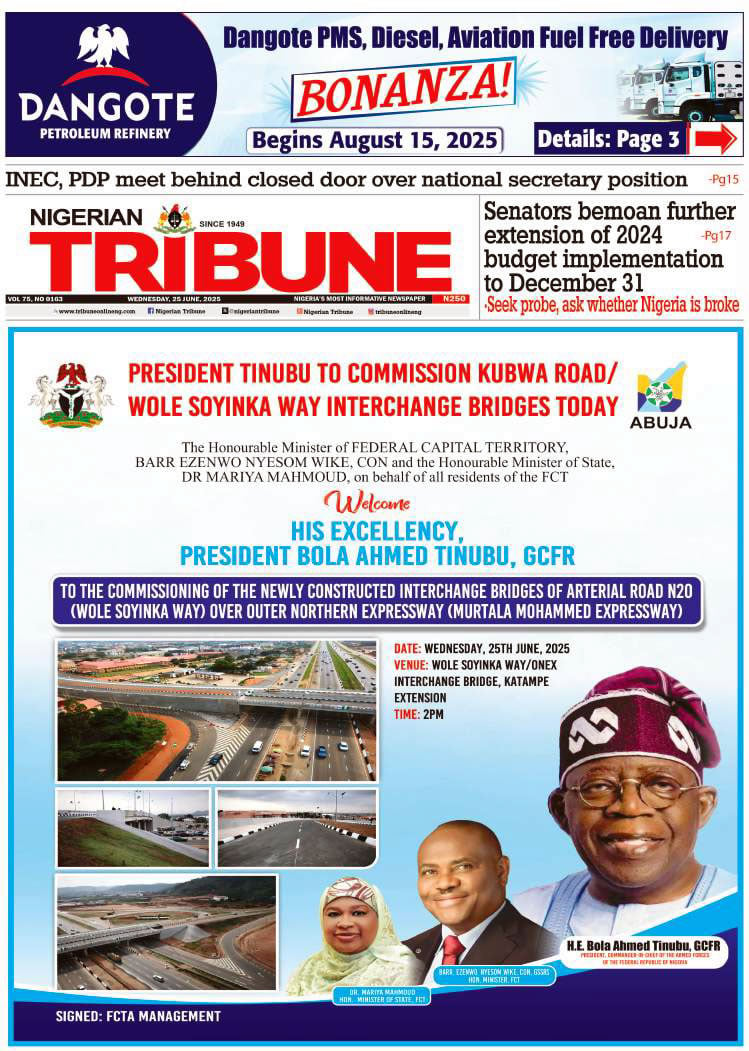OSARETIN OSADEBAMWEN writes on the controversy thrown up as the Senate Committee on Defence seeks to unearth the circumstances surrounding the alleged spending of the sum of N14. 376 billion from the coffers of the Nigerian Export Processing Zones Authority (NEPZA).
The Senate defence session had, in the last two weeks, been revealing in some ways. It brought to the fore some curious spending of public fund by same agencies of the Federal Government. More disturbing was the supposed secrecy in which the terms that determined the deployment of such public funds running into billions of naira were arrived at.
This fact was laid bare before the Senate when the Minister of State for Industry, Trade and Investments, Ambassador Mariam Katagum appeared, alongside her permanent secretary, Mr Akpan Edet, before the Senate Committee on Trade and Investments, chaired by Senator Rose Okoh (Cross River North).
The meeting was the usual joint budget defence session where representatives of ministries departments and agencies (MDAs) review their budget performance for the outgoing fiscal year and also make proposal for the new fiscal year. Nothing suggested that those present at the budget session would leave the hall confused over a matter that was raised by the Chairman, Senate Committee on Trade and Investments.
Welcoming Ambassador Katagum, with her delegations, Senator Okoh noted that there was a standing legislative query isued to the ministry by the eighth Senate. According to her, the query bothered on the N14, 376, 027, 584. 65 allegedly transferred illegally from the coffers of the Nigerian Export Processing Zones Authority (NEPZA) to the account of a privately-owned entity, Nigeria Special Economic Zones Company (NSEZCO).
It was later revealed that NZESCO was created the supervising officers of the ministry to make the public sector move with the speed of the private sector while enjoying public funding in curious circumstances. Senator Okoh said the ninth Senate would seek to clarify the issue, particularly from the minister who superintended the ministry of industry, trade and investments.
Though Senator Okoh made a passing reference to the legislative query, the other members of the joint committee demanded full disclosure on the matter. Their demand, however, met the brick wall as they were told that the details were outside the purview of either the minister or the ministry whose supervision over the NEPZA does not preclude the expenditure pattern of the supervised agencies which, by law, should account to it on all public funding. The comment turned to be the critical issue for discourse at the session as the lawmakers could not fathom the propriety of the transaction, an act appropriately described as misappropriation.
The transfer of the fund to NSEZCO was and still remained a breach of the 2017 Appropriation Act, which clearly allocated the resources for use to a specific area of funding gap listed in the budget proposal to the ministry. Again where it was appropriated to the same NZESCO, it begged the question of how the funding of a private entity becomes the responsibility of the Federal Government. Senator Okoh further stated: “This committee intends to see the query and inquiry to a logical conclusion and seeks explanation on how that sum got moved from government coffers, ostensibly, to a private company without due process and without provision of goods and services.”
Besides, she noted that there were some overlapping functions of NEPZA and the Onne Oil and Gas Authority which should be streamlined. The alleged breach of the constitution by the former Minister of Trade and Investments, Okechukwu Enalemah, as was to be later put in perspective by the permanent secretary of the ministry, Edet Apkan, stirred a web of issues from the lawmakers, shifting the budget defence session to a sort of a fact-finding mission where almost all the lawmakers who spoke demanded explanation on the propriety of the N14.37bn transaction.
Convinced that the country was to be shortchanged in the transaction, the lawmakers impressed it on their chairman to dig deeper into the matter while the minister and the permanent secretary were available. They urged her to make the ministry officials to give details of the deal which they believed was allegedly designed to bleed the country of its scarce resources on a continual basis, especially as, according to the permanent secretary, it had received two appropriations already in 2017 and 2018.
Section 80, sub-sections 1 to 4 of the 1999 Constitution, as amended, provide a clear directive on the manner public funds are to be expended and under whose directives. The expenditure seemed not to have met all of these constitutional provisions for spending of public fund. As the import of the law stare the minister and her permanent secretary in the face, she was tasked to take up the responsibility of the public confidence entrusted in her as a minister of the Federal Republic of Nigeria.
Ambassador Katagum considered it a delicate task for her to explain the complexity of the expenditure. She rather referred the lawmakers to her subordinate as she said: “Luckily the permanent secretary (Edet Akpan) is here, so he may cast some light on some of the issues. We have taken note of this query and we are going to follow up on that.” She however admitted that she and her senior colleague, Chief Adeniyi Adebayo, had been briefed on the matter upon their resumption at the ministry.
Akpan, while giving the details of the alleged illegal transfer of N14,376,027,584.65 from the 2017 allocation of NEPZA, said though the money had been warehoused in the Central Bank of Nigeria (CBN) only the executive secretary of NEPZA has the answer to the question asked by the lawmakers. The 14bn in respect of NEPZA is an item NEPZA is in a very proper place to explain to the committee. I believe NEPZA will find a way of doing that. The idea of opening an equity company was the creative idea of the former minister [Okechukwu Enalemah] who believed that it was proper to have a centralised equity company that could manage all free trade zones in the country. We, in nexus, will contribute to a particular purse so that money realised from there will now be applied to create and develop free trade zones. It was also his [the former minister’s] belief that NEPZA and the Oil Gas Free Trade Zones should concentrate on some regulatory aspects of their mandates without getting themselves involved in the operations. That was why it was the decision that an equity company was necessary to be created.”
“In all he (Okechukewu Enalamah) did, he consulted very widely and also got the approval of the Federal Executive Council (FEC). There was also an inter-ministerial committee which managed the affairs of the free trade zones. The minister also requested from the Budget Office the sum of N48bn to be appropriated for the purpose of that investment in 2017. Unfortunately, the amount that was released was about N14bn. That N14bn was 100 per cent controlled by NEPZA. It had nothing to do with the main ministry. The main ministry has no power or authority or any link to or over what they do with the amount that is appropriated under a particular agency of the ministry. That was how it was,” the permanent secretary stated.
Akpan told the lawmakers that a probe into the matter would be challenging because the Federal Executive Council (FEC) was allegedly part of the deal. He pointedly said the approval for a special purpose vehicle named NZESCO was to execute the new thinking of the former minister that the operating speed in the private sector should be injected into how government should handle its business clusters for economic growth. Akpan went further to state that when the minister thought of implementing the programme, he had meeting with NEPZA, for the purpose of requesting that NZESCO be set up and that he got the direct approval of the FEC so that the money can be applied for that purpose.
“He [the former minister] requested that NEPZA should transfer that one to an account that was open at the CBN. That was done. Now, in the course of trying to implement that his policy or the policy of the ministry, if I can use the word, there was a kind of disagreement in terms of who were the equity subscribers to the company. One of the subscribers was the Ministry of Finance Incorporated and one Mr Wadinga was chosen as the representative of the ministry of finance at that time. There were also some names from outside. The concept on which the minister set up the company was that, for it to be formally incorporated, it needs not have much of government hand as shareholder. Therefore, it was proper to make use of the private sector. That was how it came.
“Then your predecessor in office, the Senate committee chairman, made some observation that the execution of that project was to be put on hold and NEPZA wrote to the CBN for the money not to be appropriated in favour of NZESCO. N48bn was in respect of NZESCO. So in 2018, it came in as an item of expenditure in the budget. About N9 billion was appropriate for that purpose. I do not have answer if any aspect of that money was released to NEPZA or not. They will be able to explain that. As it is now, that money is in CBN,” he added.
The unfolding development in NEPZA may be the first true test of the will of the Senator Ahmad Lawan-led National Assembly, which has to report back to Nigerians whose mandate it has to keep the executive in check and evolve transformational programmes and policies for economic growth.






